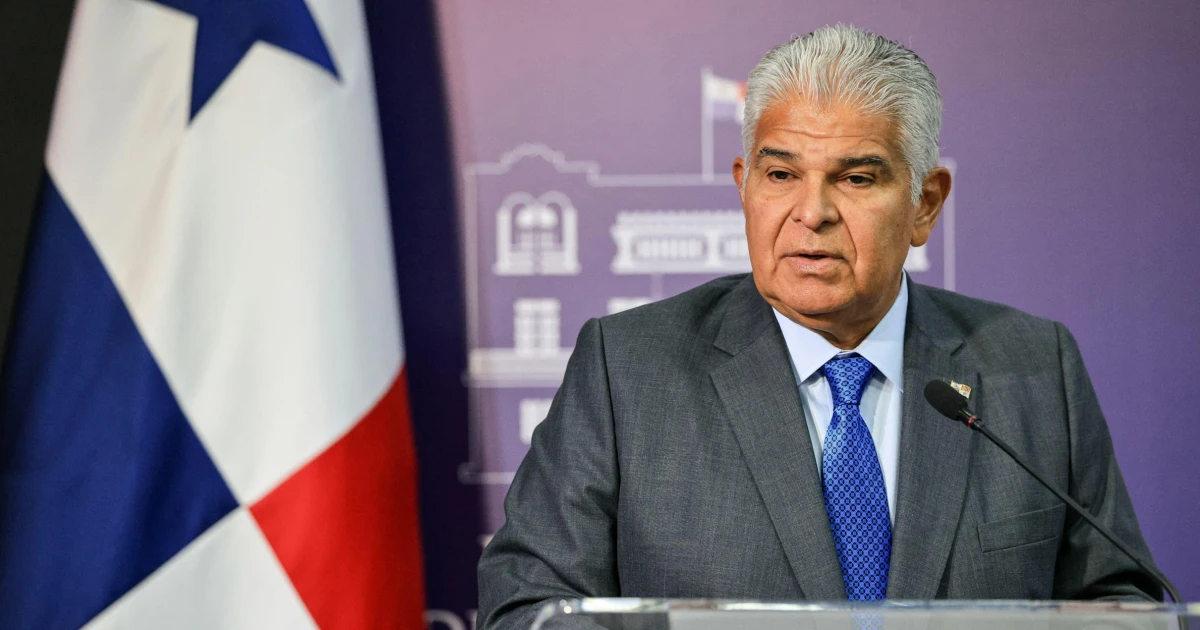Panama’s president, José Raúl Mulino, has strongly criticized the United States for spreading what he called a “quite simply intolerable falsehood” about the Panama Canal.
His remarks come as Donald Trump’s pledge to “take back” the waterway continues to strain relations between the two countries and raise concerns across Latin America.
On Wednesday, the U.S. State Department claimed that Panama had agreed to stop charging U.S. government vessels for passage through the canal, a move that would reportedly save Washington millions of dollars each year.
However, the Panama Canal Authority, which has been caught in the middle of the diplomatic controversy sparked by Trump’s statements, denied the claim. The authority issued a statement making it clear that no “adjustments” had been made to its tolls or fees.
On Thursday, Mulino dismissed the State Department’s assertion in even stronger terms. Speaking to reporters, he said: “I am extremely surprised by yesterday’s State Department announcement because they are making important statements … based on a falsehood, and this is intolerable, quite simply intolerable.”
Later that day, Mulino revealed that he was scheduled to speak with Trump by phone on Friday.
The dispute erupted four days after Trump repeated his unsubstantiated claim that the U.S. had “foolishly” handed over control of the canal to Panama in 1999, only for it to be taken over by China. “And we’re going to take it back, or something very powerful is going to happen,” Trump warned on Sunday.
At the same time, U.S. Secretary of State Marco Rubio was in Panama as part of a five-country tour of Latin America. While meeting with Mulino, Rubio delivered a similar message, according to the State Department.
He reportedly told the Panamanian leader that Trump believed “the current position of influence and control of the Chinese Communist Party over the Panama Canal area is a threat to the canal” and was “unacceptable.”

Panama’s President, José Raúl Mulino (Photo: Getty Images)
Rubio went on to say: “Absent immediate changes, it would require the United States to take measures necessary to protect its rights.”
In response to Mulino’s comments on Thursday, Rubio stated: “The United States has a treaty obligation to protect the Panama Canal if it comes under attack.
That treaty obligation would have to be enforced by the armed forces of the United States, particularly the U.S. Navy. I find it absurd that we would have to pay fees to transit a zone that we are obligated to protect in a time of conflict.”
While most analysts consider U.S. military action to reclaim the canal unlikely, the 1989 U.S. invasion of Panama to remove dictator Manuel Noriega serves as a reminder that such an action is not impossible.
One of Trump’s main objectives with his rhetoric appears to be pressuring Panama—along with other Latin American and Caribbean nations—to curb China’s growing economic influence in a region long viewed by Washington as its strategic “backyard.”
Over the past 25 years, China’s presence in Latin America has expanded significantly, with Beijing surpassing the U.S. as South America’s largest trading partner.
Trump’s anti-China strategy may be having an impact. On Thursday, Mulino announced that Panama’s diplomats had informed their Chinese counterparts that the country was withdrawing from China’s Belt and Road initiative.
The massive, trillion-dollar development program spearheaded by Chinese President Xi Jinping aims to stimulate economic growth—and enhance Beijing’s geopolitical influence—through major infrastructure projects worldwide, including railways in Thailand and Ethiopia and a newly opened “mega port” in Peru.
Meanwhile, China has pushed back against the U.S. narrative. On Wednesday, Chinese Foreign Ministry spokesperson Lin Jian accused Washington of making “irresponsible remarks on the Panama Canal issue” and of deliberately distorting, attacking, and misrepresenting relevant cooperation.
Lin defended the Belt and Road initiative, saying the partnership between China and Panama had “achieved fruitful outcomes.”
